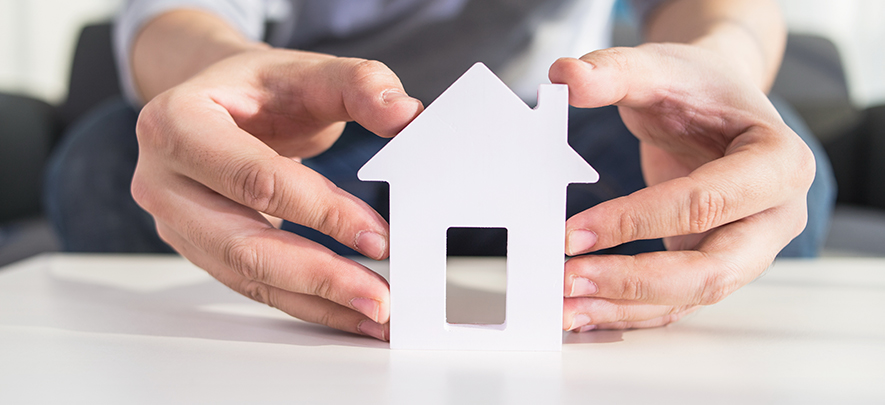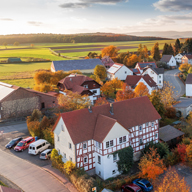Home sweet home

Health & Lifestyle
308 week ago — 7 min read
Summary: A very interesting survey by Housing.com reveals that nearly 93% of people looking to purchase a new home prefer houses that are Vastu compliant and about 56% believe that the entrance of a house is the most important factor in determining Vastu compliancy. Fung Shui, which originated in China and later spread all over the world, is another aspect that people look into before purchasing a property. Both Vastu and Feng Shui are sacred forms of knowledge that reveal the deep connection between human beings and their place of dwelling. They focus on human wellbeing which can be achieved only if we are in harmony with our nature and the universal flow of energy. Dr Harshit Kapadia shares certain important factors to be kept in mind before buying a house.
We all wish for our home to be ‘a sweet home’. Feeling of bliss is essential in a home for it to be ‘home, sweet home’. Buying a new house is a great learning process in itself. For few, buying a new home is simple: They wish for it, dream it and they can manage to buy it. However, for many it’s a big challenge.
When a person starts looking for new home, many aspects like locality, area, neighbourhood, building complex, etc., are considered and surveyed. The way legal due diligence is done before finalising the property, similarly, Vastu and Feng Shui due diligence is essential before purchasing the new home. It is always better to adapt Vastu and Feng Shui principles while purchasing the property so you make the right choice that suits you. Vastu and Feng Shui needs to be customised as per the date of birth of occupants, however, there are few general guidelines which you can follow.
When you start viewing the property, first check the vibe. Whenever you enter the property, stand in the centre for a few minutes with eyes closed and see how good your body feels. Walk around the house slowly, if the house energies are good, your body and mind will fell relaxed and positive, such houses are very good.
Process before you start
A famous proverb says ‘we become what we think’. Vastu and Feng Shui are connected with your conscious and sub-conscious mind, hence, before you even start viewing properties for yourself, think positive. Make a wish list. Start with your budget, area, locality, floor, etc. Put as much information as you can in the wish list. Start meditating on it everyday and make your mind positive and receptive to accept this for you and your family. Also add word like ‘strong vastu /good energies’ in the list. Start with positive visualisation.
Important things to be kept in mind
When you start viewing the property, first check the vibe. Whenever you enter the property, stand in the centre for a few minutes with eyes closed and see how good your body feels. This is the most important test for checking the vibes. Walk around the house slowly, if the house energies are good, your body and mind will fell relaxed and positive, such houses are very good.
Next get the floor plan, see the shape of the house / property. Each and every shape has its own uniqueness and it generates and different combination of energies. Vastu and Feng Shui recommends having symmetric and proportionate shape. Among all the shapes, square is the best. Square shape helps in overall harmony, prosperity and brings favourable energies.
The next best shape is rectangle. The ratio of the width of a rectangle plot to the length must vary from 1:1.5 to 1:2 with all the corners at 90 degrees angle. This shape leads to peace, harmony and good health. In case if the ratio of the property exceeds 1:2 in terms of length and breadth of the property, the energies get stretched and thus create imbalances. However, in reality, especially while looking for apartments, deformation is commonly found in most of the sites, because of many limitations. The deformation of site influences the occupant and may have a positive, negative or balanced effect. Hence, if any deformation originates, it needs correction. In case if the shape is not too negative, simple corrections can be done with the help of practical solutions under the guidance of an expert.
Avoidable shapes
• Triangle-shaped house: It leads to tension, disputes and aggression.
• L-shaped house: In ‘L’ shape, the centre generally goes out of the house, leading to instability and health issues.
• Step-shaped house: Such houses have too many cut corners leading to imbalances in energy flow.
• Absolute asymmetric or irregular-shaped house.
Other parameters:
• In case you are opting for a pre-owned house, it is important to find out the history of the family who previously lived there. Check how prosperous and healthy the former owners were. Avoid buying houses where the earlier owners suffered difficult times.
• Even if basic Vastu directions and other parameters match the criteria, it is a must to check for proper natural light and ventilation in the house. Avoid houses that are dull, dark and dingy. Having windows on the east and west helps in optimising sunlight.
• Check for water leakages and dampness. If there is a severe water leakage in the property, avoid it.
• Houses having cross ventilation are considered good.
• Energies at car parking level are highly unstable, because of movement of cars; avoid houses which are directly above car parking as it generally leads to health issues among the occupants staying above the parking area.
• Avoid houses which are directly above or below swimming pools or any kind of water storage tanks, as this, too, leads to imbalanced energy flow within the house.
There are many more parameters while checking for new house. It is generally a challenge to find a perfect home but follow these ways to enhance the energies of a home and make it your 'Home Sweet Home'.
To explore business opportunities, link with me by clicking on the 'Connect' button on my eBiz Card.
Disclaimer: The views and opinions expressed in this article are those of the author and do not necessarily reflect the views, official policy or position of GlobalLinker.
View Harshit 's profile
Most read this week
Trending
Ecommerce 9 hours ago











Comments
Share this content
Please login or Register to join the discussion